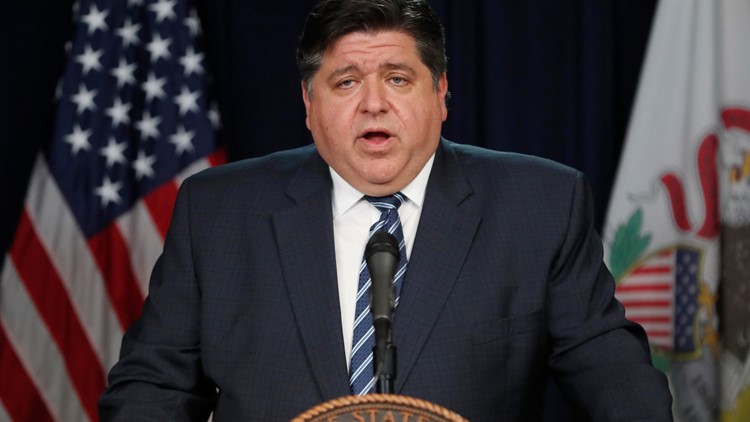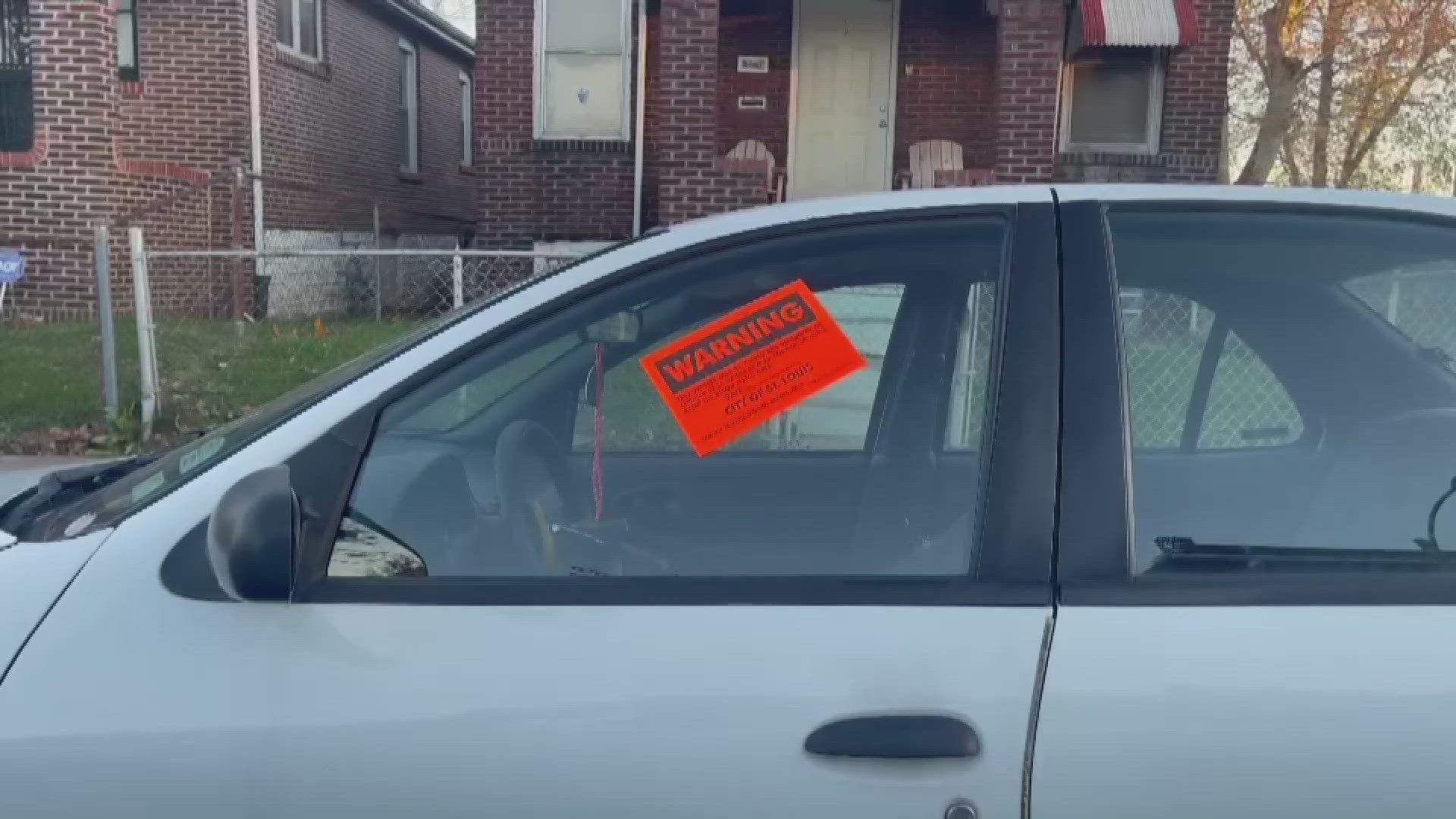CHICAGO — Illinois Governor JB Pritzker announced a package of state grant programs on Wednesday that will help support communities and businesses impacted by the COVID-19 pandemic and unrest in the area.
The package includes more than $900 million across more than 10 programs and four state agencies to help working families and small businesses who have been hit the hardest by COVID-19’s economic impacts, which was compounded by recent property damage and civil unrest.
“We are in a moment that requires a historic effort to mitigate this virus’s devastating effects on the health and livelihoods of the residents of this state,” said Governor Pritzker. “We must do so in a way that prioritizes those who were hurting long before we’d ever heard of COVID-19 – to be there for people who are in need, people who are falling through the cracks, people who never expected themselves to need a helping hand from anyone else – but now they do. With assistance from the federal CARES Act and in partnership with the General Assembly, including from the Black Caucus, Latino Caucus, and Asian Caucus, my administration has put together a support package of over 900 million dollars to lift up small businesses, working families and Black and Brown communities who have been hit the hardest by COVID-19’s financial impacts. I’m deeply proud to lead a state government so committed to being there for the people we serve.”
According to a press release from Gov. Pritzker’s office, the economic toll of the COVID-19 pandemic has impacted residents across Illinois but has disproportionately affected households with limited resources who are least able to weather financial hardship. Businesses across every industry sector have faced significant economic strain.
EMERGENCY RENTAL ASSISTANCE PROGRAM
The Illinois Housing Development Authority (IHDA) is launching a $150 million program with $5,000 grants to provide emergency rental assistance to Illinois tenants who are unable to pay their rent. The Emergency Rental Assistance Program (ERA) is expected to reach approximately 30,000 renters who are disproportionately impacted by the pandemic.
The program will launch in August 2020 and run through the end of the year. Gov. Pritzker will extend the ongoing residential eviction ban through July 31 to provide a smooth transition into the assistance program.
EMERGENCY MORTGAGE ASSISTANCE PROGRAM
IHDA is launching a separate $150 million program for eligible Illinois homeowners with grants of up to $15,000 to provide support with mortgage payments. The Emergency Mortgage Assistance Program (EMA) is expected to assist approximately 10,000 eligible homeowners who are unable to pay their mortgage. The program is also expected to launch in August 2020 and provide assistance through the end of the year.
NEW BUSINESS INTERRUPTION GRANTS PROGRAM
The Department of Commerce and Economic Opportunity (DCEO) will launch the first round of Business Interruption Grants (BIG) by providing $60 million to businesses experiencing losses or business interruption as a result of COVID-19 related closures. The BIG Program is available for up to 3,500 businesses that experienced a limited ability to operate due to COVID-19 related closures. DCEO will begin distributing funds to qualifying businesses in early July. The total program funding will amount to at least $540 million in grants for small businesses, $270 of which has been set aside for childcare providers, and is funded by the CARES Act.
Specifically, the program includes support for:
- Businesses in DIAs - $20 million for businesses that are located in a subset of DIAs that have recently experienced significant property damage, providing 1,000 grants of $20,000 each
- Bars and Restaurants - $20 million for bars and restaurants unable to offer outside service, providing at least 1,000 grants of up to $20,000 each
- Barbershops and Salons - $10 million for barbershops and salons, providing 1,000 grants of $10,000 each
- Gyms and Fitness Centers - $10 million for gyms and fitness centers that have lost significant revenue due to COVID-19, providing 500 grants of $20,000 each
DISTRESSED CAPITAL PROGRAM
The Department of Commerce and Economic Opportunity’s new economic recovery program will provide $25 million to support Illinois businesses that have sustained property damage as a result of civil unrest during the recent protests and demonstrations on or after May 25.
The Distressed Capital Program will reimburse the costs to repair structural damages, including repairs to storefronts and entrances, improving electrical systems, and restoring exterior work.
The program will prioritize small businesses, women and minority-owned businesses, underinsured or uninsured businesses, businesses that have a high community impact – such as grocery stores – and businesses in communities that have experienced historic disinvestment.
The Rebuild Distressed Communities NOFO will solicit applications from regional and local organizations that will perform outreach, coordinate local qualified vendors, and provide funds to cover the cost of repairs and building improvements for businesses in their region. The Distressed Capital Program also includes provisions to ensure BEP-certified contractors, including minority- and women-owned businesses, are the first in line to do the repair work.
POVERTY ALLEVIATION STRATEGIES
The Department of Human Services (IDHS) will provide $32.5 million in an effort to immediately mitigate poverty in Illinois and respond to the needs of hard-hit communities by COVID-19 and by the civil unrest. The program will support more than 73,000 people across the state by building upon contracts and services to target communities disproportionately affected by the pandemic.
Specifically, the IDHS strategies will provide:
- Unemployed Adults - Stipends of up to $4 million to help rebuild businesses
- Summer Youth Providers – More than $6 million to empower and engage youth and help rebuild communities
- Foods Banks - $2 million to expand the capacity to feed hungry families in the hardest hit areas
- Illinois Black and Brown Farmers - $1 million to increase the availability of fresh food and produce
- Mental Health Services - $2 million to help meet the increased demand for crisis services and better serve diverse communities
- Community-Based Organizations - $5 million to provide small grants for healing circles, restorative justice circles, and other healing activities
- Temporary Assistance for Needy Families (TANF) - One-time $500 payment to help ensure food security, totaling $11.5 million
Additionally, the Department on Aging will expand the Emergency Senior Services Funds by providing up to $5 million to support senior residents in need of meals, groceries, medicine, and medical care.
MORE ILLINOIS NEWS



